Meet me at the Library | A Conversation with Shamichael Hallman
Key Points
-
Libraries can be powerful spaces for fostering civic health, entrepreneurship, and storytelling, providing resources and opportunities for all.
-
Collaboration between schools and libraries can unlock access to resources and programs that enhance learning and community engagement.
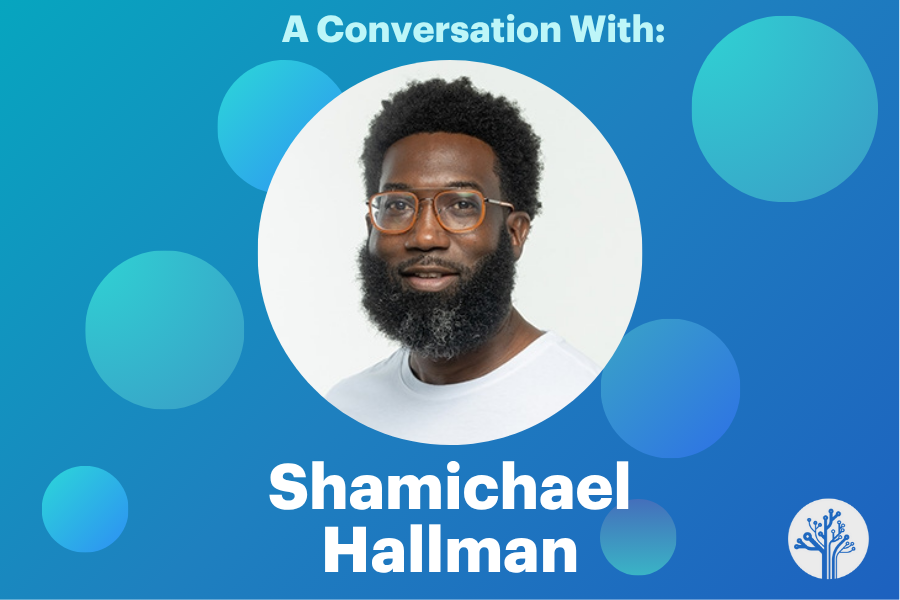
I talk a lot about libraries. I love how they are truly multi-generational, cross-cultural, cross-income spaces. I love the way that they likely were created at such the right place at the right time, that they probably would never happen again… a space that’s always free. A space that’s constantly pivoting to try and meet the needs of a community. A place that has a core purpose of building a collection just so they can share it. These are spaces that we must cherish. They also could teach schools a thing or two about quick pivots, meeting demands of communities, and serving the whole community rather than a select few.
Libraries are an example of third spaces—the other places to gather and be aside from home and work. Their social infrastructure for cultivating curiosity, creating community, and, for today’s conversation, congregating civically. Today, I’m joined by Shamichael Hallman, director of Civic Health and Economic Opportunity of the Urban Libraries Council and the author of the new, great book, Meet Me at the Library: A Place to Foster Social Connection and Promote Democracy.
When reading this book, I just kept thinking about how much of this applied to schools, and I’m super excited to have the conversation with you today. So welcome, Shamichael.
Mason Pashia: So my parents live in rural Colorado, and I once went into their library and discovered I could check out a telescope, a snowblower, or all these other awesome things. But there’s so much more to libraries than just places to check out items. I think unless you click on the secret “programs” page on the library website, it’s so easy to miss all the amazing things they have.
I was really struck by the work that you supported in Memphis when you were at that library, which really leans into this libraries+ idea. Would you mind giving our listeners a brief overview of that story?
Shamichael Hallman: Yeah, so Memphis is an incredible city. In 2017, I was given an amazing opportunity to help guide and shape the renovation and reimagining of the historic Cossitt Library, the first library built in Memphis. It had a rich history of being situated in and serving the community, but it was time to give it new life. I had the chance to work with some amazing designers, architects, and community stakeholders to start asking the question: “What do we want this place to be?” If we removed any restrictions or preconceived notions of what a library has to be, if we could imagine it to be whatever the community needed, what might that be?
Going through a fairly lengthy process of engagement, construction, and renovation, we ended up with a space that is now an award-winning library with international recognition. Inside, there’s a café with a variety of menu options at different price points, ample meeting rooms, and two recording spaces—one for audio and one for video. On the audio side, you can do anything from a podcast or a voiceover project to a light indie album. On the video side, you can work on photography projects, social media videos, and TikTok videos. A green screen, a camcorder, and a microphone are all available to you with your library card.
In addition to those spaces, there is also a multi-use performance area with many different configurations. It’s being used for performances right now, but also for corporate gatherings. In the middle of that is a coworking and workshop space, which is really important. Coworking is a growing trend, as more people are working from home and telecommuting, and they are looking for places to work. We were able to create a space where people could go, hang out, work, and collaborate with others.
Mason Pashia: That’s amazing. I’m curious, did you know from experience that you could make a light indie album in that room? Were you tracking in there?
Shamichael Hallman: Well, I did some recording in there. I have experience with podcasting. I didn’t record an album, but I did go in and try to make some beats, which was pretty fun.
Mason Pashia: Okay, that’s great! A lot of what you’re saying sounds like a shift from extraction to contribution, a concept we’ve discussed at Getting Smart. It’s about shifting these spaces and school curricula from places where you’re just trying to extract information or transfer knowledge, to a place where you’re contributing back to the system and creating useful artifacts or collaborations. I recently saw a group called “Libraries as Launchpads” that upskills librarians to be entrepreneurship coaches. This builds on the idea that many librarians are already like business coaches, connecting you to the right people and knowing the right processes for getting started.
I’m super bullish on this entrepreneurship idea. We talk about it all the time with youth—that entrepreneurship is the job of the future, and they should be connecting with librarians to get that training. I’m curious if you’ve seen other examples of this entrepreneurship in libraries and if you also think it’s a big deal.
Shamichael Hallman: Yeah, well, first off, hats off to the “Libraries as Launchpads” people. I’ve served as a judge and mentor in that program a couple of times, and it’s fantastic. Libraries do so much in the space of entrepreneurship right now. In my current role at the Urban Libraries Council—an innovation and action tank of about 190 urban public library systems across North America—one of my responsibilities is around economic opportunity, specifically looking at how libraries equip and empower entrepreneurs. We look at this across four domains.
The first is physical space. As I mentioned with the Memphis example, there’s a coworking and workshop area that serves remote workers and teleworkers. This is very important because even in a city with a robust coworking ecosystem, it isn’t always affordable for an upstart entrepreneur. So you need a space that’s more inclusive and accessible. This isn’t the library competing; it’s the library being part of the ecosystem, saying, “Hey, until you get your footing, you can come here and work and do your thing.”
In addition to coworking spaces, many libraries are now adding makerspaces with robust equipment like heat presses for apparel businesses and 3D printers for creating mockups. We recently spoke to the San Diego Public Library about two gentlemen in the Navy who, during their last deployment, came across a common issue sailors had: “How do we clean our razor blades since we have to shave every day?” They created a prototype, sketched it out, and then came home, went to the library, and used the 3D printer to draft a mockup. They could then seek funding to launch their business. You just wouldn’t think of a library in that way.
The second domain is research services. As you mentioned, if you go to a library’s website and click on the programs tab, you see all sorts of things. But in most cases, there’s also a research tab. On that tab, you’ll see hundreds of databases, some of which are very powerful for entrepreneurs. There are databases that provide access to market data so you can understand your competitors, what’s happening in the landscape, how people are pricing their products, and what neighborhood is best for a new brick-and-mortar store. These databases are available for free with the swipe of your library card.
Shamichael Hallman: Right. And again, a lot of entrepreneurs and even a lot of organizations that support entrepreneurs don’t know that. So we’ve been doing a lot of work to help people understand it.
The third domain is programs. Libraries host tons of programs to help entrepreneurs, from technical things like how to launch a business, get a business license, and organize taxes, to soft skills like “How do you bounce back from your first ‘no’?” and “How do you keep a creative mindset?” Libraries don’t just do this work themselves; they often bring in outside experts like accountants, lawyers, and entrepreneurs to teach these things to the community. It’s really fascinating to see all the ways that libraries step in to help entrepreneurs and business owners.
Mason Pashia: It’s incredible. We talk all the time about how important it is for students to do real-world and interdisciplinary work. Based on what you described, a high school student could go to the library, get access to market research, conduct a study on what’s needed in their community, and come up with an idea. They could then go to the 3D printer to make a prototype that fills that gap. With their research and prototype, they could start pitching their small business or even run it using new technology tools like AI to create a website in 10 minutes. They could hit the ground running. It’s just incredible.
Shamichael Hallman: It’s truly incredible to think about.
Cultivating Belonging and Civics
Mason Pashia: So, I really do encourage any education leaders listening to seek out their local library for some of these resources to ramp up their marketing, business, and entrepreneurship courses or programs. You focus a lot on civics in your book, which is something we talk a lot about. It’s so important and so currently underdone. I saw a statistic from America’s Promise Alliance that said 97% of young people think civics is critically important, but only 40% feel prepared to do it. That gap is unacceptable. Being civically ready is a fundamental role of being a person in a society.
I think one key piece that libraries are really good at is creating a sense of belonging in the building, which makes it feel like a space where you can do this work in a way that feels inclusive and generative. I’m curious if you have any tips or stories about libraries as spaces of belonging, because I think they are unique in how they invite everyone in. Schools, for security and privacy reasons, don’t do that, and we’d love to see more of it. What comes to mind for you?
Shamichael Hallman: Well, I think it starts with what you just said: being a low-barrier place of entry. It doesn’t matter if you have money in your pocket, where you slept last night, or your political or religious beliefs—you can just come in and be. That’s important, because we don’t have a lot of places that are free, accessible, and inclusive. As much as the library leans into this idea, it’s equally important for it to continue asking itself, “Are we as inclusive as we say we are? Are we as welcoming as we say we are? Who from the community is not coming into the building, and how might we invite them? What does that invitation look like? What are the needs and interests of those folks?”
You see libraries using a number of levers. One is programming. A library might recognize a group of people they want to attract and ask, “What are they interested in? What are their hobbies? How can we plan programs around that?” You’ll see a host of programs that libraries do. Some are cultural. In the book, I talk about the Cambridge Public Library in Cambridge, Massachusetts. Through its foundation, it invested in an induction food cart and periodically invites local chefs from the community to come and cook on it. They talk about their culture, history, and what the food means to them. This not only brings in people indigenous to that culture but also others who are interested in learning about a new cuisine. In this way, you create connections and opportunities for people to meet others they may not have met before.
Another lever is outreach and marketing. The San Jose Public Library created a beautiful outreach program called #RightToLibraries. With this hashtag, they tried to get a cross-section of all the people who use their library and asked them to share their experiences—what they love about the library, why they like it, and what it means to them. The campaign showed other people in the community who didn’t use the library, “Oh, there are people just like me—with the same interests, from the same community, who speak the same language—who use that library. Maybe I should go check it out.” So, becoming more inclusive through programming, physical design, and outreach are some of the things that I think really position the library to be that welcoming place.
Fostering Civic Health
Mason Pashia: Hmm, for sure. I love that example of the food cart. I think that’s really, really smart. I guess part of this is also creating a sense of ownership with respect to civics. I think a lot of people feel a degree of separation or they aren’t sure where to put their energy on the subject, but they still want to be more engaged. How have you seen libraries bridge that gap, specifically in the setting of your book?
Shamichael Hallman: Sure. I like to start with a definition to set the ground. This comes from the New Hampshire Civic Index, which defines civic health as the ways in which residents of a community participate in activities that strengthen well-being, enhance interconnections, build trust, help each other, talk about public issues and challenges, volunteer in government and nonprofit organizations, stay informed about their communities, and participate directly in crafting solutions to various social and economic challenges.
You see a couple of different buckets here: one is civic awareness and engagement. Here, libraries host town hall meetings, serve as polling locations, and bring residents together to talk about local issues. I want to stress that the libraries that do this right tend to stay away from national issues and focus on local ones like water access, crime, and safety. This bucket is always going to be important because, as you said, so many people believe civics is important but don’t know where to get started. They don’t know how their local government works, who is in office, how to reach out to these people, or how to hold them accountable. Libraries, in addition to providing books, are able to offer access to a wide range of knowledge and civic education that you might not get anywhere else.
The second area is connections and belonging. Here, you see the library doing things around food, music, art, and culture that are designed to bring together people from various backgrounds. We’re not necessarily talking about laws and regulations; we’re just enjoying the moment together, whether it’s delicious food or amazing music. In the process, we get to know each other and humanize each other, even if we have different political beliefs or ideologies.
The third bucket is volunteerism and giving back. You see everything from libraries with gardens in front of them, like the Discovery Garden at a library in Grand Junction, Colorado. People work in the garden, especially at harvest time, to package food for the community. This is another opportunity for people to come together and work in ways that build civic muscle.
Mason Pashia: I love that definition so much. In education right now, there’s a trend around “portraits of a graduate,” which is a way for a district or state to align on the competencies a graduate should have. More often than not, they are the five or 10 most basic durable skills, like critical thinking, creativity, and collaboration. But I would love to see a portrait of a graduate that is just those seven civic wellness definitions you just gave. If we could get everyone to come out of high school feeling like they know how to do each of those seven things, that would lead to a really healthy society.
Shamichael Hallman: Absolutely. And you might think that if you were going to—I mean, as I wrap up the book and do more work, I think there’s probably an eighth one you could add around media literacy, because that’s super important. It’s not explicitly stated in that definition, but I think it should absolutely be there.
Storytelling and a Hopeful Future
Mason Pashia: I’m actually interested in your thoughts on this. A colleague and I were just talking yesterday about literacy and the idea that, rather than keep appending new literacies and defining them, we should redefine what literacy means as a whole. Fundamentally, literacy is just the ability to engage with information. It feels like digital literacy, technological literacy, media literacy, and traditional literacy are all so related that it’s a shame to pick and choose which ones you focus on due to time and resources. You agree with that?
Shamichael Hallman: Yeah, I think so. Because there’s so much. I love the way you set that up, because with that as a grounding, you can start to think, “Okay, what are the competencies someone might need to be able to navigate all of those?” What are the critical thinking skills, and what is the curiosity that you need to lean in, digest what you’re reading, listening to, and hearing, and then filter that against the competencies you’ve developed?
Mason Pashia: Totally. It’s critical thinking, as you said. There’s also general communication and active listening. I think it could even be defined as empathy in a bidirectional way—it’s a way to understand someone who is speaking about something differently than you. It’s also a way for you to recognize bias. For example, “I’m empathetic enough to understand that this person is trying to make an argument, and if I do two clicks, I can see who funded them, and now I know why they’re doing that.” Creativity is certainly one, too. You have to be a creative navigator of information. You’re going to get a deep fake across your feed somewhere, and you’re just going to be like, “Oh, I’m numb in this moment. Sure, that’s real.” I’m curious if you’d add anything else.
Shamichael Hallman: For me, one of the things I think about a lot right now is civic learning beyond K-12 and higher ed, because millions of Americans may not have received a high-quality civic education in high school or elementary school. This is tragic, as it should be a standard for every student. And of course, not everyone goes to a college or university, so where do you even get a base level of understanding around what it means to be civically engaged?
Listening to what you’ve said, so much of what I’m leaning into right now is that I think we’ve forgotten how to be with each other. How to be in the company of strangers and how to be in the company of people who think or come from a different orientation than we do. It’s created these echo chambers and silos that make it very difficult to even listen to what someone might say. So I am very interested right now in the range of programs and experiences that we can create in a public library setting and what we can learn from K-12 and higher education to help people get stronger in that way.
Mason Pashia: I totally agree. This is a bit of a tangent, but it’s related. As part of the Friends of the Seattle Public Library Board, I recently went to the Capitol in Olympia and did some lobbying for library services. It was a great experience, and I had never done it before. I think every high schooler—every citizen, really—should have to go lobby at a Capitol. I wish it would happen in high school. It teaches you so much. You have to find something you care about, come up with a very succinct argument for why it matters, and then go into the room and defend it. You learn so much about the workings because you’re talking to legislators directly. You realize they’re weighing so much right now, and you have to make the sale.
It was such a vivid and positive experience about something I thought I understood but totally didn’t. I just think everyone should have to do that.
Shamichael Hallman: That’s beautiful. I’m going to actually take that and see what might be possible there.
Mason Pashia: Yeah, you could even do mock lobby days, or some kind of virtual thing, especially for students who don’t live close to a Capitol. It was just a really nice experience. Loosely tying back into entrepreneurship, something we talk a lot about is problem-framing. We need everyone to be able to identify something they’re frustrated with and put a boundary around it so it’s a concrete issue and not just a vague feeling. That’s a really good way to start. The wrong side of media literacy is just making stuff on a vibe.
Shamichael Hallman: For sure. As you say that, I want to give a shout-out to an organization doing just this in high schools, called the Mikva Challenge.
Mason Pashia: Oh yeah, their soapbox is amazing. I talked to them years ago, but I haven’t heard from them in a while. Thanks for bringing them up again. I should reach back out to them.
I want to get a little bit out on a slightly poetic, metaphoric limb for a second. I’ve been thinking a lot recently about these tools that do credentialing for young people and adults. A huge part of that is being able to provide evidence of your learning. You can tuck in a reflective processing of what you did or an end assessment. The more I look at it, and the more I see these AI tools processing credentials—you put in the credential to the AI, and it says, “Based on the experience this person had, blah, blah, blah”—the more it seems more important than ever to be able to tell your own story.
In my head, I’m thinking the new role of a teacher might be to co-author a student’s journey. How do you get a student to reflect over time on what they learned, where they struggled, and to be able to put language to that and share their journey? I wonder if libraries offer any training in storytelling. I think that’s a unique advantage to them. There are all these people who are around stories all day. I’m curious if they have programming around that or what their relationship is to storytelling itself.
Shamichael Hallman: Yeah, absolutely. There are so many examples of how libraries do that. The one that’s really sticking out to me right now is something I’ll go back to in Memphis, even though I’m not there anymore. One of the things I was able to implement before I left was an Innovator-in-Residence program. What we were trying to do was say, “Hey, there are things in the community that people are passionate about that the library maybe doesn’t have experience in, but somebody in the community does. If we tap into that person and find a way to invite them to do their thing inside the library, we would not only attract new audiences but also be able to better serve the people who are already in the library.”
The first person we brought in was a 20-year radio executive who had moved into podcasting. We brought her in as the Innovator-in-Residence in podcasting, and for the last couple of years, she has been teaching skills and how to tell your story via podcast. She attracts people of all ages. You can book a little bit of her time, 15 or 20 minutes, and she will sit down and individually walk with you. She also does a community program, so anyone can show up. Not only is she giving these lessons on understanding your story arc and narrative, but she’s also layering on the digital resources the library has to help people leverage technology to tell their stories.
Recently, she created a cohort of women to tell their stories through podcasting. I saw a picture of them on stage sharing their stories, and these women were crying because it was probably the first time that some of them had ever been able to share and tell their stories and also have support from other women who were like, “I see you. Your story is valuable and important.” And that’s not just a Memphis thing. There are libraries all over the country that are finding these innovative ways to tap into whatever that community is—indigenous practices or storytelling—to help people tell their stories.
Mason Pashia: Yeah, okay. Thank you, that’s super helpful. As we come to a close here, I’m curious what gives you hope right now for our civic wellness future. We’re in a weird civic moment, to say the least. Are you seeing things—whether it’s in response to the book or just conversations you’ve been having—that give you hope, thinking about those New Hampshire guidelines?
Shamichael Hallman: Well, first and foremost, it is the library professional—the librarian. Since I’ve been at the Urban Libraries Council for almost two years now, I’ve come across hundreds of librarians in every corner of this country who recognize the significance of the public library and are using everything at their disposal—the books, the physical space, programs, and the library’s trust—to bring people together, have conversations, and educate people. These folks put it all on the line. Sometimes librarians are not always the most well-paid folks, though that’s changing, but people are stepping up. In large urban libraries with hundreds of people and in small rural libraries with just one person, people are stepping up. That gives me a tremendous amount of hope.
Secondly, you mentioned the Seattle event. I had an opportunity to come to Seattle a couple of weeks ago and give a talk at Town Hall Seattle. There were just everyday people who showed up, and some said, “Hey, I haven’t been in the library in a long time. I grew up in the library in high school and college, but I haven’t been recently. But man, I’m fired up about libraries now, and I’m going to go get a library card and write to my senator and representative and tell them to leave libraries alone.” So, that second level of hope is all the library lovers—the current ones, the ones who have always been, and the new ones who are saying, “Nope, leave the library alone.”
And then I would say, lastly, the younger generation. I’m just inspired by their strength, their passion, and the way they can communicate what’s important to them. I do think that, in the long haul, we’re going to be okay.
Mason Pashia: There’s nothing more hopeful than “we’re going to be okay.” That is truly the most hopeful. Well, Shamichael, thank you so much for chatting. I have to go right after this to the library to hear a poetry reading, so I’ll be walking in your prior footsteps. It was so great to chat with you today. The book’s amazing, so everyone, get Meet Me at the Library wherever you get books—and hopefully that’s a library. Thank you so much, Shamichael. Hope you have a great day.
Shamichael Hallman: Thanks for having me.
Guest Bio
Shamichael Hallman
Shamichael is a social, civic and tech innovator. As a ’23 Loeb Fellow at the Harvard Graduate School of Design, he explored how urban design and planning can make for socially inclusive cities. He has served as the Senior Library Manager with Memphis Public Libraries where he guided the reimagining of the historic Cossitt Library. His 2020 TEDx talk “Reimagining the Public Library to Reconnect the Community” garnered international acclaim. In 2021 he co-founded Libraries as Bridges which focuses on evaluating how libraries build social cohesion, promote civic renewal and advance the ideals of a healthy democracy.
Links
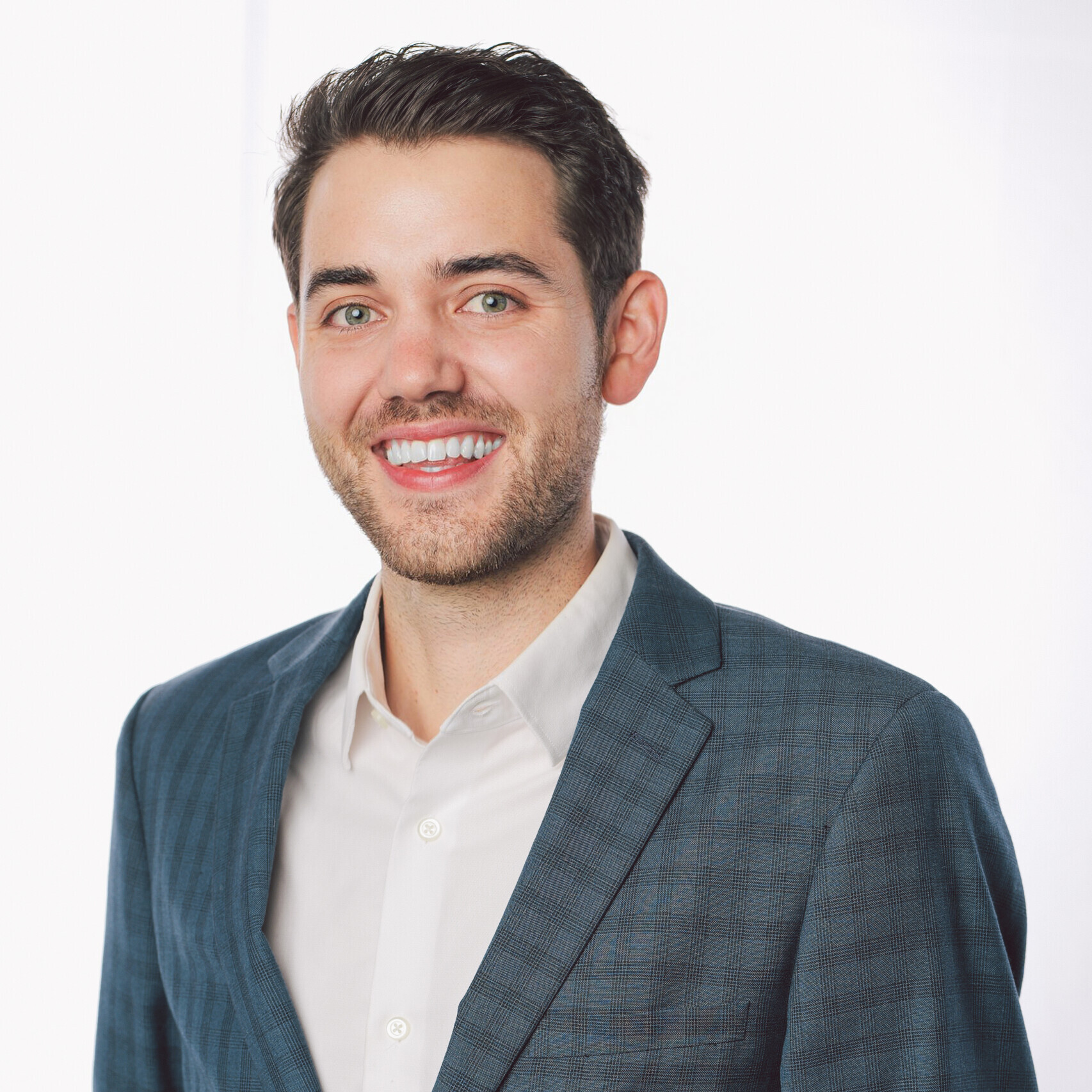


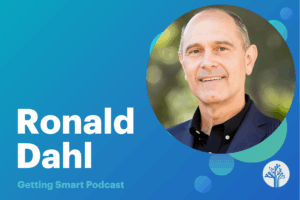
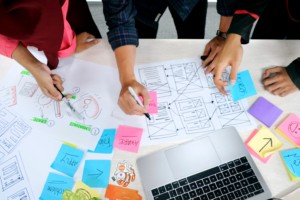

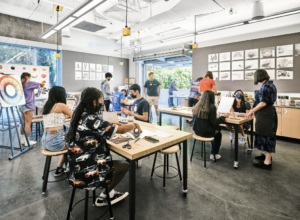
0 Comments
Leave a Comment
Your email address will not be published. All fields are required.